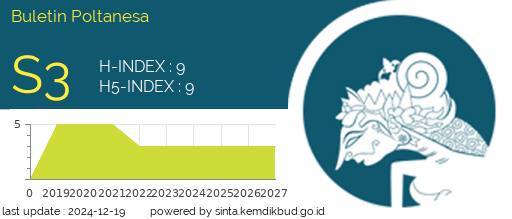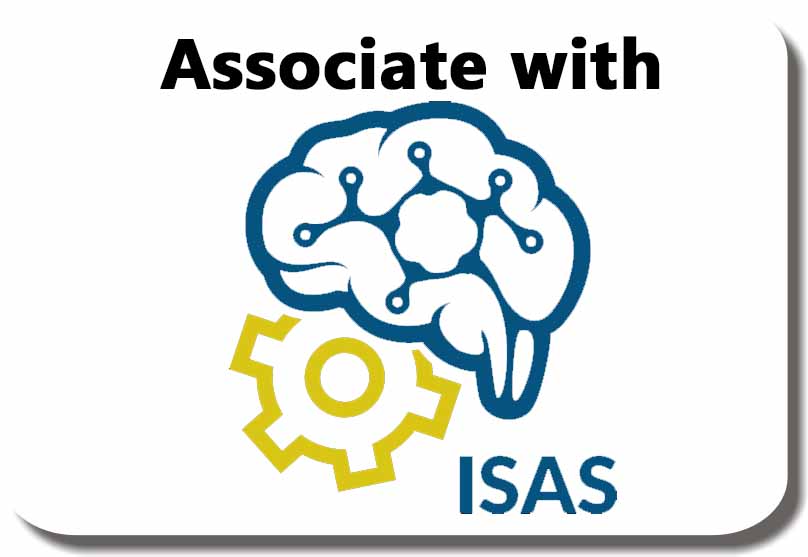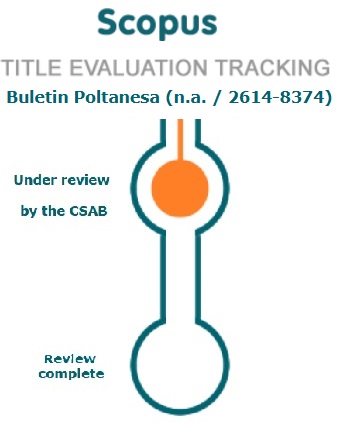The Potential of GPT in Education: Opportunities for Students’ Feedback
DOI:
https://doi.org/10.51967/tanesa.v25i1.3043Keywords:
GPT, Feedback, Educational, ChatbotAbstract
The objective of this study is to investigate the capacity of GPT (Generative Pre-trained Transformer) in delivering feedback to students. The research methodology employed was bibliographic research, involving the gathering of data from various sources such as books, articles, and academic documents. The findings uncover various crucial prospects for employing GPT in providing feedback to students. Firstly, GPT has the ability to automate the generation of feedback, providing consistent and immediate responses. Additionally, it facilitates personalised learning by customising feedback to meet the specific needs of each student, enabling multiple instances of personalised learning reinforcement. In addition, GPT offers language assistance, aiding students in overcoming linguistic obstacles. It improves the process of creating content by aiding in the development of educational materials and assignments. Another notable benefit is its round-the-clock availability, guaranteeing that students can receive feedback at any hour, thereby enhancing their learning experience. Finally, GPT can be incorporated into cutting-edge educational applications, promoting a more interactive and captivating learning environment. In summary, GPT's ability to produce automated, tailored, and easily accessible feedback demonstrates its potential to greatly enhance educational methods and student achievements.
References
Achiam, J., Adler, S., Agarwal, S., Ahmad, L., Akkaya, I., Aleman, F. L., … Zoph, B. (2023). GPT-4 Technical Report. ArXiv, 4(1), 1–100. Retrieved from http://arxiv.org/abs/2303.08774
Alser, M., & Waisberg, E. (2023). Concerns with the Usage of ChatGPT in Academia and Medicine: A Viewpoint. American Journal of Medicine Open, 9(February), 1–2. https://doi.org/10.1016/j.ajmo.2023.100036
Chavez, M. R. (2023). ChatGPT: the good, the bad, and the potential. American Journal of Obstetrics and Gynecology, 229(3), 357. https://doi.org/10.1016/j.ajog.2023.04.005
Currie, G. M. (2023). Academic integrity and artificial intelligence: is ChatGPT hype, hero or heresy? Seminars in Nuclear Medicine, 53(5), 719–730. https://doi.org/https://doi.org/10.1053/j.semnuclmed.2023.04.008
Farrokhnia, M., Banihashem, S. K., Noroozi, O., & Wals, A. (2023). A SWOT analysis of ChatGPT: Implications for educational practice and research. Innovations in Education and Teaching International, 12(6), 1–15. https://doi.org/10.1080/14703297.2023.2195846
Floridi, L., & Chiriatti, M. (2020). GPT-3: Its Nature, Scope, Limits, and Consequences. Minds and Machines, 30(4), 681–694. https://doi.org/10.1007/s11023-020-09548-1
Ghojogh, B., Ghodsi, A. L. I., & Ca, U. (2017a). Attention Mechanism , Transformers , BERT , and GPT : Tutorial and Survey. ArXiv, 1(1), 1–14.
Ghojogh, B., Ghodsi, A. L. I., & Ca, U. (2017b). Attention Mechanism , Transformers , BERT , and GPT : Tutorial and Survey. ArXiv.
Gómez-Camacho, A., de-Pablos-Pons, J., Colás-Bravo, P., & Conde-Jiménez, J. (2023). Writing, creativity, and artificial intelligence. ChatGPT in the university context. Comunicar, 31(77), 47–57.
Grassini, S. (2023). Shaping the Future of Education: Exploring the Potential and Consequences of AI and ChatGPT in Educational Settings. Education Sciences, 13(7), 692. https://doi.org/10.3390/educsci13070692
Haleem, A., Javaid, M., & Singh, R. P. (2022a). An era of ChatGPT as a significant futuristic support tool: A study on features, abilities, and challenges. BenchCouncil Transactions on Benchmarks, Standards and Evaluations, 2(4), 100089. https://doi.org/10.1016/j.tbench.2023.100089
Haleem, A., Javaid, M., & Singh, R. P. (2022b). An era of ChatGPT as a significant futuristic support tool: A study on features, abilities, and challenges. BenchCouncil Transactions on Benchmarks, Standards and Evaluations, 2(4), 1–8. https://doi.org/10.1016/j.tbench.2023.100089
Hibarna, I., Santosa, A. P., Barlian, U. C., & Ramadhan, F. (2023). Manajemen Konflik Dalam Meningkatkan Kinerja Guru. AL-AFKAR : Journal for Islamic Studies, 6(2), 84–94. https://doi.org/10.31943/afkarjournal.v6i2.517.Conflict
Hu, Z., Dong, Y., Wang, K., Chang, K. W., & Sun, Y. (2020). GPT-GNN: Generative Pre-Training of Graph Neural Networks. Proceedings of the ACM SIGKDD International Conference on Knowledge Discovery and Data Mining, 1(1), 1857–1867. https://doi.org/10.1145/3394486.3403237
Kamnis, S. (2023). Generative pre-trained transformers (GPT) for surface engineering. Surface & Coatings Technology, 129680. https://doi.org/10.1016/j.surfcoat.2023.129680
Kasneci, E., Sessler, K., Küchemann, S., Bannert, M., Dementieva, D., Fischer, F., … Kasneci, G. (2023). ChatGPT for good? On opportunities and challenges of large language models for education. Learning and Individual Differences, 103(9), 1–9. https://doi.org/10.1016/j.lindif.2023.102274
Liu, J., Shen, D., Zhang, Y., Dolan, B., Carin, L., & Chen, W. (2022). What Makes Good In-Context Examples for GPT-3? DeeLIO 2022 - Deep Learning Inside Out: 3rd Workshop on Knowledge Extraction and Integration for Deep Learning Architectures, Proceedings of the Workshop, 3(1), 100–114. https://doi.org/10.18653/v1/2022.deelio-1.10
Liu, X., Zheng, Y., Du, Z., Ding, M., Qian, Y., Yang, Z., & Tang, J. (2023). GPT understands, too. AI Open, Journal Pr(1), 1–14. https://doi.org/10.1016/j.aiopen.2023.08.012
Liu, Y., Han, T., Ma, S., Zhang, J., Yang, Y., Tian, J., … Ge, B. (2023). Summary of ChatGPT-Related research and perspective towards the future of large language models. Meta-Radiology, 1(2), 1–14. https://doi.org/10.1016/j.metrad.2023.100017
Meng, K., Bau, D., Andonian, A., & Belinkov, Y. (2022). Locating and Editing Factual Associations in GPT. Advances in Neural Information Processing Systems, 35(NeurIPS), 1–15.
Mhlanga, D. (2023). Open AI in Education, the Responsible and Ethical Use of ChatGPT Towards Lifelong Learning. SSRN Electronic Journal, 22(4), 1–19. https://doi.org/10.2139/ssrn.4354422
Nabizadeh, A. H., Gonçalves, D., Gama, S., Jorge, J., & Rafsanjani, H. N. (2020). Adaptive learning path recommender approach using auxiliary learning objects. Computers & Education, 147(6), 103–117. https://doi.org/https://doi.org/10.1016/j.compedu.2019.103777
Qadir, J. (2023). Engineering Education in the Era of ChatGPT: Promise and Pitfalls of Generative AI for Education. 2023 IEEE Global Engineering Education Conference (EDUCON), 1–9. https://doi.org/10.1109/EDUCON54358.2023.10125121
Rahimi, F., & Talebi Bezmin Abadi, A. (2023). ChatGPT and Publication Ethics. Archives of Medical Research, 54(3), 272–274. https://doi.org/https://doi.org/10.1016/j.arcmed.2023.03.004
Ray, P. P. (2023). Re-evaluating the role of AI in scientific writing: a critical analysis on ChatGPT. Skeletal Radiology, 52(12), 2487–2488. https://doi.org/10.1007/s00256-023-04404-6
Ruksakulpiwat, S. (2023). Using ChatGPT in Medical Research: Current Status and Future Directions. Journal of Multidisciplinary Healthcare, 16, 1513–1520. https://doi.org/10.2147/JMDH.S413470
Shannon Tan, S. T. R. (2023). Journal of Applied Learning & Teaching ChatGPT : Bullshit spewer or the end of traditional assessments in higher education ? Journal of Applied Learning & Teaching, 6(1), 242–263.
Teo, D. B., & Tan, L. F. (2023). The impact of Chat Generative Pre-trained Transformer (ChatGPT) on medical education. Postgraduate Medical Journal. https://doi.org/10.1093/postmj/qgad058
Zhai, X. (2022). ChatGPT is a new AI chatbot that can find mistakes in your code or write a story for you. National Science Foundation(NSF).
Zhang, Z., Liu, W., Han, J., Guo, S., & Wu, Y. (2013). A trial of patient-oriented problem-solving system. 1–8.
Zheng, H., & Zhan, H. (2023). ChatGPT in Scientific Writing: A Cautionary Tale. The American Journal of Medicine, 136(8), 725-726.e6. https://doi.org/https://doi.org/10.1016/j.amjmed.2023.02.011
Downloads
Published
How to Cite
Issue
Section
License
Copyright (c) 2024 Buletin Poltanesa

This work is licensed under a Creative Commons Attribution-ShareAlike 4.0 International License.
The copyright of this article is transferred to Buletin Poltanesa and Politeknik Pertanian Negeri Samarinda, when the article is accepted for publication. the authors transfer all and all rights into and to paper including but not limited to all copyrights in the Buletin Poltanesa. The author represents and warrants that the original is the original and that he/she is the author of this paper unless the material is clearly identified as the original source, with notification of the permission of the copyright owner if necessary.
A Copyright permission is obtained for material published elsewhere and who require permission for this reproduction. Furthermore, I / We hereby transfer the unlimited publication rights of the above paper to Poltanesa. Copyright transfer includes exclusive rights to reproduce and distribute articles, including reprints, translations, photographic reproductions, microforms, electronic forms (offline, online), or other similar reproductions.
The author's mark is appropriate for and accepts responsibility for releasing this material on behalf of any and all coauthor. This Agreement shall be signed by at least one author who has obtained the consent of the co-author (s) if applicable. After the submission of this agreement is signed by the author concerned, the amendment of the author or in the order of the author listed shall not be accepted.











